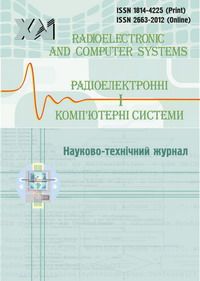Logical-semantic models and methods of knowledge representation: cases for energy management systems and SMR digital infrastructures

Öffnen
Datum
2024Autor
Dotsenko, S.
Brezhniev, E.
Nor, D.
Klymenko, L.
Hnatchuk, A.
Metadata
Zur LanganzeigeZusammenfassung
The subject of this article is the development of information technologies at the end of the 20th and the beginning of the 21st century for the Fourth Industrial Revolution in the form of Industry 4.0, i.e., Internet of Things (IoT) technologies. Successes in the implementation of this technology have led to the development of new applications in the energy sector, such as energy management systems, small modular reactor (SMR) management systems, and alternative power supply systems based on renewable energy sources. The digital infrastructure of these management systems is characterized by a high «density of knowledge», which requires clarification of fundamental concepts in information theory, namely the content of the concepts «data», «information», «knowledge» and «meaning of knowledge». Special attention was given to defining the role of knowledge. The aim of this study is to further develop methods and models of semiotic theory by determining the role and place of logical as well as eight- and four-factor logical-semantic models of knowledge bases in semiotic space. Предметом цієї статті є розвиток інформаційних технологій наприкінці 20-го та на початку 21-го століття для Четвертої промислової революції у вигляді Індустрії 4.0, або іншими словами, технологій Інтернету речей. Успіхи у впровадженні цієї технології призвели до розробки нових застосувань в галузі енергетики, таких як системи енергетичного менеджменту, системи управління малими модульними реакторами (ММР), альтернативними системами електропостачання на базі відновлюваних джерел енергії. Цифрова інфраструктура вказаних систем управління характеризується високою «щільністю знань», що вимагає уточнення фундаментальних понять теорії інформації, а саме змісту понять «дані», «інформація», «знання» та «значення знання». Особливу увагу було приділено визначенню ролі знань. Метою є подальший розвиток методів та моделей теорії семіотики шляхом визначення ролі та місця логічних, а також восьми- та чотирифакторних логіко-семантичних моделей баз знань у семіотичному просторі
Collections
Verwandte Dokumente
Anzeige der Dokumente mit ähnlichem Titel, Autor, Urheber und Thema.
-
Object-relational data models for real the world
Anzenberger, P.; Chukhray, A. (ХАІ, 2007)Object oriented programming became very popular in the last years. The idea to imitate real-world patterns (building systems with interacting objects) in system modeling and software development is yet as simple as powerful. ... -
Simulation of arms distribution strategies by combat zones to create military parity of forces
Fedorovich, O.; Lukhanin, M.; Prokhorov, O.; Slomchynskyi, O.; Hubka, O.; Leshchenko, Y. (ХАІ, 2023)The problem of researching weapons distribution strategies to ensure effective combat operations in a military conflict zone is being formed and solved. The relevance of the study is related to the solution of the task of ... -
Method of information technology for structure analysis of urban network fire-rescue units
Danshyna, S.; Nechausov, A. (ХАІ, 2023)The subject of this study is the process of analyzing the structure of the network of fire-rescue units of the city in the context of optimizing their spatial distribution. The purpose of this work is to increase the ...
